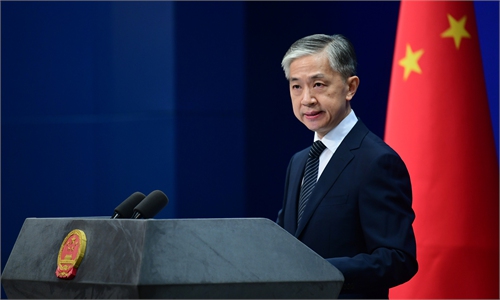Biden admin’s 3rd arms deal to Taiwan won’t boost DPP’s security, only benefits arms dealers: expert

Taiwan Photo: Unsplash
The Biden administration approved its second arms sale to the Taiwan authority in two months, an estimated $95-million package including equipment and services to maintain the missile defense system the US exported to the island.
It's also the third arms sale to Taiwan since President Joe Biden took office in January 2021, which Chinese experts viewed as a move to pacify the island amid the Ukraine crisis. They believe that there will be an increasing number of arms deals between the US and the Taiwan authority, which will not be enough to help the island win in a conflict, but enough to make American arms dealers sip champagne and celebrate.
According to a statement released by US Defense Security Cooperation Agency (DSCA) on Tuesday, the sale will include "training, planning, fielding, deployment, operation, maintenance, and sustainment of the Patriot system, associated equipment, and logistics support elements," as well as ground support equipment and spare parts.
The statement read that the proposed sale serves US national, economic, and security interests, and will also help improve the security of the recipient.
DSCA noticed that it is the Taipei Economic and Cultural Representative Office in the US (TECRO) which made the request, a move which some analysts said "puts the onus on the Taiwan authority" and avoids pissing off the Chinese mainland too much.
However, Chinese Foreign Ministry spokesperson Zhao Lijian on Wednesday said the sale seriously violates the one-China principle and the three China-US joint communiques, undermines China's sovereignty and security and development interests, and seriously undermines China-US relations and peace and stability across the Taiwan Straits.
The US should cancel the arms sales plan and stop military contacts with the Taiwan authority, Zhao said. "China will take firm and forceful measures to resolutely safeguard its sovereignty and security interests."
The Biden administration offered its first military sale to Taiwan island worth $750 million in August 2021, with 40 Paladin M109A6 self-propelled howitzers and 20 M992A2 Field Artillery Ammunition Supply Vehicles. The second one was in February 2022, a $100 million package that included equipment and services to support participation in the Patriot International Engineering Services Program and Field Surveillance Program (FSP) for five years, to maintain and improve the Patriot air defense missile system.
"The Taiwan authority has already become the US' cash machine," Chinese military expert Song Zhongping told the Global Times on Wednesday.
The US-made patriot missiles have a variety of complicated types in Taiwan, which require upgrading, life extension and maintenance, including the calibration of precision components. So the US just takes this as a chance to ask the Taiwan authority for more money, Song explained.
The price of buying US-made weapons and equipment is already high, and the subsequent maintenance costs are even higher. As long as the Taiwan authority buys US weapons, they have to buy American services regularly; otherwise the weapons might go wrong, said Song.
Like the Ukraine crisis, US politicians and arm dealers also attempt to stir up regional conflict and create hot spots near the Taiwan Straits, and wantonly sell more weapons to the Taiwan authority, including upgrading and maintaining costs to fill their pockets, Song said.
As long as there are Patriot missiles in Taiwan, the Americans will keep coming up with new lists, Song said. He expects the US and the Taiwan authority to have more arms deals and maintenance costs in the future to cater to the Taiwan secessionists' need to "resist reunification by force."
Taiwan's military authority on Wednesday expressed "sincere gratitude" to the US deal, which was described by the island as not only "boosting self defense capabilities" but also showcasing the "rock-solid relations."
The content, the price, and the timing, are largely in the hands of the US. Taiwan does not have much say but to accept, Xin Qiang, deputy director of the Center for American Studies at Fudan University, told the Global Times on Wednesday.
The reason for two similar arms sales in a short period of time, according to Xin, is more about politics than defense.
It may be that the outbreak of the Russia-Ukraine conflict has made Taiwan's Democratic Progressive Party (DPP) authority think that its air defense system needs strengthening, but they may be more concerned with reassuring their secessionism supporters not to lose confidence in themselves and the supposed commitment from US, Xin said.
Taiwan media outlets said the latest arms deal is expected to take effect in a month. "Most people know that the arms deal will not change the balance of military power across the Straits," Xin said.
Experts said the two recent arms sales, both related to Patriot missile systems, may signal that future sales will be more focused on developing Taiwan's asymmetric capabilities in combat.
It is not rare to see the arms package proposed by the US to the Taiwan authority over the years is at odds with the island's own ideas, Xin said.
He explained that the US has always been urging Taiwan island to develop asymmetric warfare, with small, cheap but sophisticated weapons and equipment such as mines, anti-ship cruise missiles and air defense systems, rather than main-battle tanks and capital warships.


